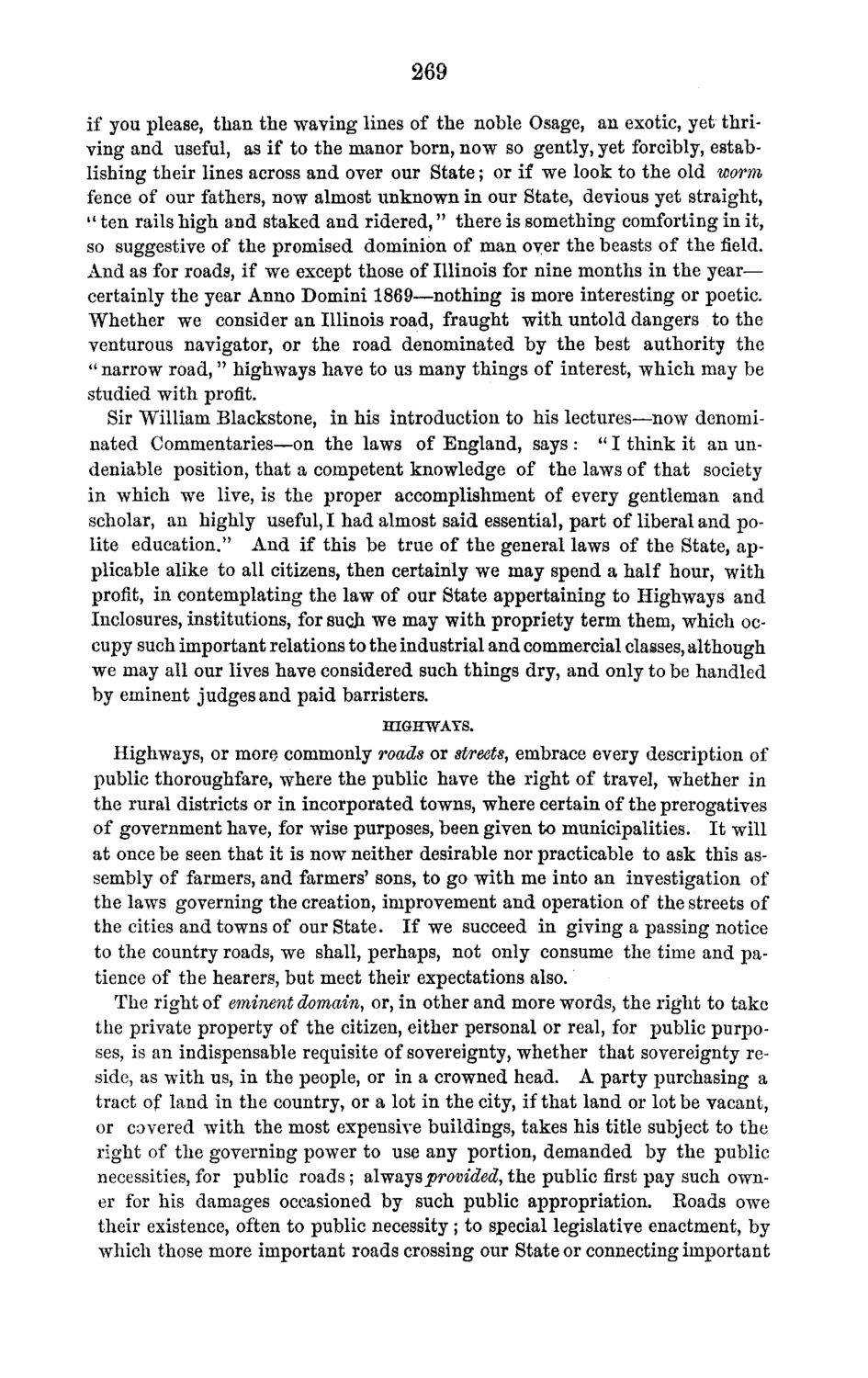| |
| |
Caption: Board of Trustees Minutes - 1870
This is a reduced-resolution page image for fast online browsing.

EXTRACTED TEXT FROM PAGE:
269 if you please, than the waving lines of the noble Osage, an exotic, yet thriving and useful, as if to the manor born, now so gently, yet forcibly, establishing their lines across and over our State; or if we look to the old worm fence of our fathers, now almost unknown in our State, devious yet straight, " ten rails high and staked and ridered," there is something comforting in it, so suggestive of the promised dominion of man oyer the beasts of the field. And as for roads, if we except those of Illinois for nine months in the year— certainly the year Anno Domini 1869—nothing is more interesting or poetic. Whether we consider an Illinois road, fraught with untold dangers to the venturous navigator, or the road denominated by the best authority the " narrow road," highways have to us many things of interest, which may be studied with profit. Sir William Blackstone, in his introduction to his lectures—now denominated Commentaries—on the laws of England, says : " I think it an undeniable position, that a competent knowledge of the laws of that society in which we live, is the proper accomplishment of every gentleman and scholar, an highly useful, I had almost said essential, part of liberal and polite education." And if this be true of the general laws of the State, applicable alike to all citizens, then certainly we may spend a half hour, with profit, in contemplating the law of our State appertaining to Highways and Inclosures, institutions, for sucji we may with propriety term them, which occupy such important relations to the industrial and commercial classes, although we may all our lives have considered such things dry, and only to be handled by eminent judges and paid barristers. HIGHWAYS. Highways, or more commonly roads or streets, embrace every description of public thoroughfare, where the public have the right of travel, whether in the rural districts or in incorporated towns, where certain of the prerogatives of government have, for wise purposes, been given to municipalities. It will at once be seen that it is now neither desirable nor practicable to ask this assembly of farmers, and farmers' sons, to go with me into an investigation of the laws governing the creation, improvement and operation of the streets of the cities and towns of our State. If we succeed in giving a passing notice to the country roads, we shall, perhaps, not only consume the time and patience of the hearers, but meet their expectations also. The right of eminent domain, or, in other and more words, the right to take the private property of the citizen, either personal or real, for public purposes, is an indispensable requisite of sovereignty, whether that sovereignty reside, as with us, in the people, or in a crowned head. A party purchasing a tract of land in the country, or a lot in the city, if that land or lot be vacant, or covered with the most expensive buildings, takes his title subject to the right of the governing power to use any portion, demanded by the public necessities, for public roads; always provided, the public first pay such owner for his damages occasioned by such public appropriation. Roads owe their existence, often to public necessity; to special legislative enactment, by which those more important roads crossing our State or connecting important
| |